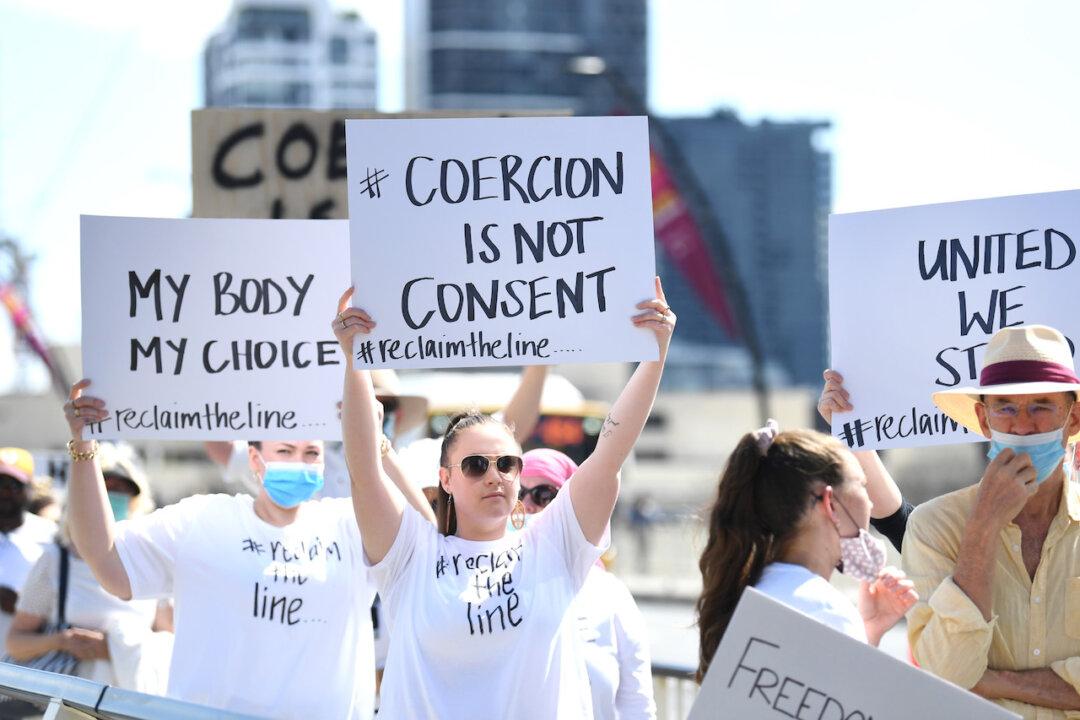Public health orders requiring teachers, health professionals, and construction workers to be vaccinated or face restrictions on their freedom of movement are valid, according to a court ruling in Australia’s most populous state, New South Wales (NSW), on Oct. 15.
Al-Munir Kassam, a Sydney-based construction worker; Natasha Henry, a Byron Bay-based aged care worker; and eight other plaintiffs, launched legal action in September against the state’s vaccine mandate—which many argued would force them to receive the vaccine otherwise risk losing their job.





